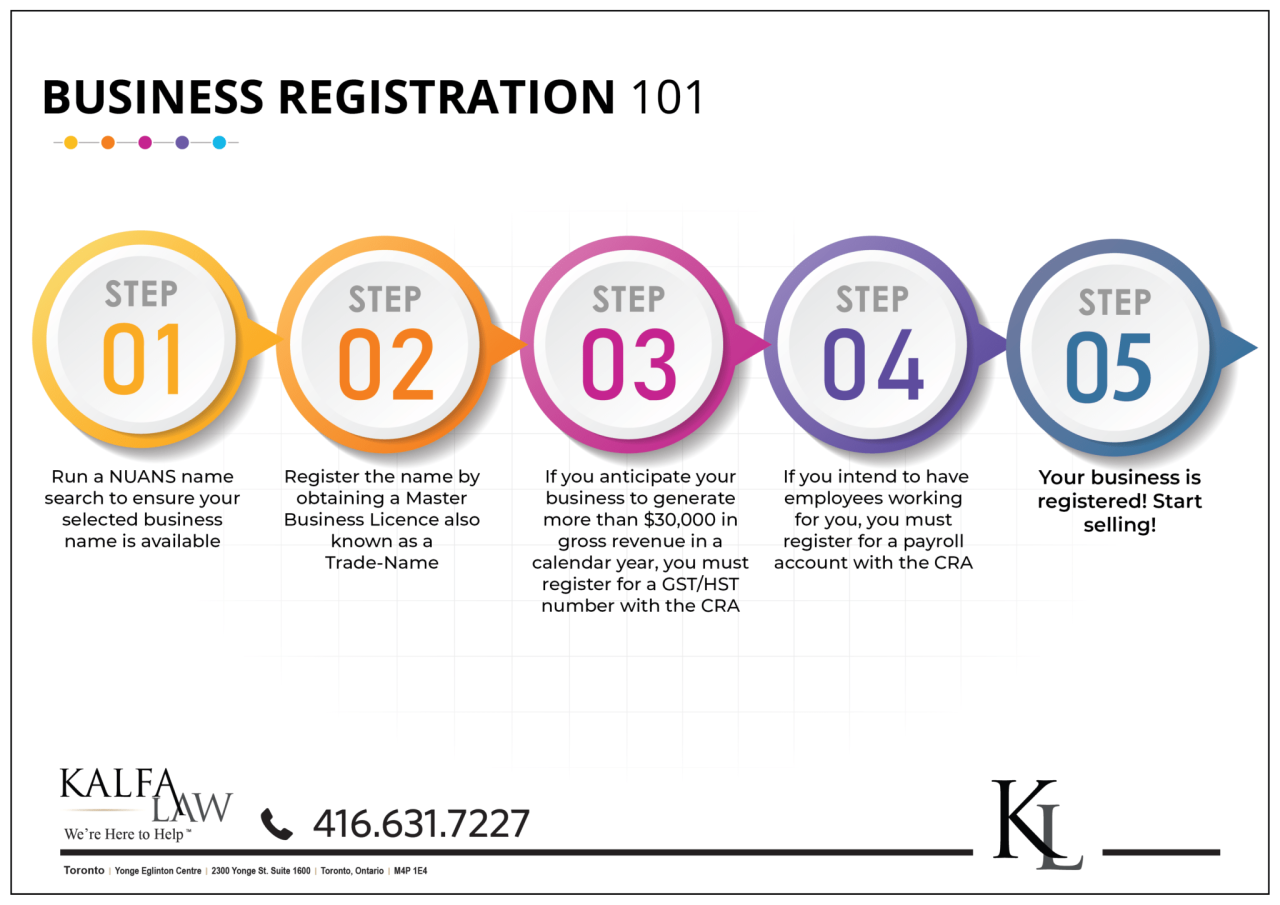How much to register a business? That’s the burning question for aspiring entrepreneurs everywhere. The cost of launching your venture isn’t just about initial capital; it’s also significantly impacted by the complexities of registering your business. This hinges on factors like your chosen business structure (sole proprietorship, LLC, partnership, or corporation), your location (which dramatically influences fees and regulations), and the services you utilize during the registration process. Understanding these variables is crucial to budgeting effectively and avoiding unexpected expenses.
From navigating filing fees and licensing costs to potentially hiring legal assistance, the path to registration can be surprisingly intricate. This guide dissects the various costs associated with business registration, providing a clear picture of what to expect and how to plan accordingly. We’ll explore different registration methods, compare their costs and efficiency, and even highlight potential hidden expenses to ensure you’re fully prepared for the journey ahead.
Factors Influencing Business Registration Costs

Registering a business involves more than just choosing a name; it entails navigating a complex web of legal and administrative requirements, the costs of which can vary significantly. Several key factors influence the overall expense, impacting entrepreneurs’ initial investment and long-term financial planning. Understanding these factors is crucial for accurate budgeting and informed decision-making.
Business Structure and Registration Fees
The type of business entity you choose significantly impacts registration costs. Sole proprietorships, typically the simplest to form, often involve minimal registration fees, sometimes only requiring a business license. Limited Liability Companies (LLCs) generally incur higher fees due to the added legal protections they offer. Partnerships, while simpler than corporations, still require registration and may involve fees depending on the jurisdiction. Corporations, with their complex legal structures and regulatory requirements, usually have the highest registration costs, often involving attorney fees and ongoing compliance expenses. The difference can be substantial; a sole proprietorship might cost a few hundred dollars, while incorporating could reach several thousand, depending on the state and the complexity of the business.
Geographic Location and Registration Costs
Registration costs are heavily influenced by geographical location. State, provincial, or national regulations dictate fees and requirements. For example, registration fees for an LLC in Delaware are known to be comparatively lower than in California, even though California’s economy is much larger. This variation stems from differences in state regulations, administrative processes, and the overall cost of doing business in each location. International differences are even more pronounced, with some countries having significantly higher registration fees and more complex processes than others.
| Business Structure | United States (Delaware) | Canada (Ontario) | United Kingdom (England) |
|---|---|---|---|
| Sole Proprietorship | $0 – $100 (primarily licensing fees) | $0 – $100 (primarily licensing fees) | £0 – £100 (primarily licensing fees) |
| LLC | $50 – $500 (filing fees, plus potential agent fees) | $200 – $1000 (filing fees, plus potential agent fees) | £100 – £1000 (filing fees, plus potential agent fees) |
| Partnership | $0 – $200 (primarily registration and licensing fees) | $100 – $500 (registration and licensing fees) | £50 – £500 (registration and licensing fees) |
| Corporation | $500 – $2000+ (filing fees, state fees, agent fees) | $1000 – $5000+ (filing fees, provincial fees, agent fees) | £1000 – £5000+ (filing fees, government fees, agent fees) |
Note: These figures are estimates and can vary significantly depending on specific circumstances. It’s crucial to consult relevant government websites and legal professionals for precise cost information. Additional costs like registered agent fees are not always included in the initial filing fees.
Typical Fees Associated with Business Registration
Several typical fees contribute to the overall cost of business registration. Filing fees are charged by the relevant government agency for processing registration documents. Licensing fees are required for specific business activities, such as operating a restaurant or selling alcohol. Other government charges may include taxes, permits, and other compliance-related costs. These fees can add up quickly, particularly for businesses requiring multiple licenses or operating in heavily regulated industries.
Cost of Professional Assistance
Hiring a legal professional or business consultant can significantly reduce the complexities and potential pitfalls of business registration. While adding to the initial cost, this assistance can prevent costly mistakes and ensure compliance with all relevant regulations. These professionals can provide guidance on choosing the right business structure, navigating complex paperwork, and ensuring the smooth and timely registration of the business. The cost of this professional assistance will vary depending on the complexity of the business and the scope of services required. The fees can range from a few hundred dollars for basic advice to thousands of dollars for comprehensive assistance with complex registrations.
Step-by-Step Registration Process and Associated Costs: How Much To Register A Business
Registering a business involves a series of steps, each with associated costs. Understanding this process and its financial implications is crucial for successful business launch. Failure to correctly navigate these steps can lead to significant delays and added expenses. This section provides a detailed breakdown of the typical registration process and the costs involved at each stage.
Business Structure Selection and Name Availability Check
Choosing the right legal structure (sole proprietorship, partnership, LLC, etc.) is the foundational step. This decision impacts liability, taxation, and administrative requirements. Simultaneously, verifying your desired business name’s availability is essential to avoid legal conflicts. This often involves searching state and federal databases.
- Cost: The cost for this step is typically minimal, often free for online name searches. However, consulting with a legal professional to advise on business structure selection may cost between $100 and $500, depending on location and attorney fees.
Registration with Relevant Authorities
Once the business structure and name are finalized, registration with the appropriate state and/or federal agencies is necessary. This usually involves filing specific forms and paying associated fees. The specific requirements vary widely depending on the business type, location, and industry.
- Cost: Filing fees vary significantly by state and business type. Expect to pay anywhere from $50 to $500 or more for state-level registration. Federal registration, if required, will add to this cost. For example, registering an LLC in Delaware might cost around $200, while a similar registration in California could be significantly higher.
Obtaining Necessary Licenses and Permits
Depending on the business’s nature and location, various licenses and permits may be required at the local, state, and federal levels. These authorizations ensure compliance with industry regulations and safety standards. Failure to obtain necessary permits can lead to hefty fines and operational shutdowns.
- Cost: License and permit fees vary greatly depending on the industry and location. Some permits might be free, while others can cost hundreds or even thousands of dollars. For instance, a food service permit might cost several hundred dollars, while a contractor’s license could be significantly more expensive.
Publication Requirements
Some states require publication of the business formation documents in designated legal newspapers. This step serves as public notice of the business’s establishment.
- Cost: Publication costs vary based on the state’s requirements and the newspaper’s rates. Expect to pay anywhere from $50 to $200 or more for this step.
Potential Delays and Associated Costs
Inaccuracies or omissions in the registration process can lead to delays and additional costs. For example, submitting incomplete forms or failing to pay fees on time may result in processing delays, requiring resubmission and additional fees. Incorrectly classifying your business structure can lead to tax penalties and legal complications down the line, incurring significant financial burdens.
Calculating Total Estimated Cost
The total cost of business registration is the sum of all the individual costs incurred during each step. This can be represented by a simple formula:
Total Cost = Structure Selection Costs + Registration Fees + License & Permit Fees + Publication Costs + Potential Penalty Costs
For example, let’s assume the following costs: Structure selection ($300), Registration fees ($250), Licenses & permits ($500), Publication ($100). In this scenario, the total estimated cost would be $1150. However, remember to account for potential penalties and delays, which could significantly inflate the final cost.
Comparison of Different Business Registration Methods

Choosing the right method for registering your business significantly impacts both the cost and the time investment required. This section compares various approaches, highlighting their respective advantages and disadvantages to help you make an informed decision. Factors such as business structure, state regulations, and personal preferences all play a role in determining the optimal registration method.
Online versus In-Person Registration: A Cost and Time Analysis
Online business registration offers convenience and often lower costs compared to in-person registration. Many states provide online portals streamlining the process, reducing paperwork and associated fees. However, online methods may not be suitable for complex business structures or situations requiring personalized assistance. In-person registration, while potentially more expensive due to additional fees or travel costs, provides direct access to state officials for clarification and support, especially beneficial for those unfamiliar with the registration process. The time saved using online methods is a significant advantage, often reducing the registration period from weeks to days.
Registered Agent Services: Costs and Benefits
Using a registered agent service involves appointing a third-party company to receive legal and official documents on behalf of your business. This service offers several advantages, including ensuring compliance with state regulations regarding service of process and providing a reliable point of contact for official communications. However, this convenience comes at a cost. Registered agent services typically charge annual fees, varying based on the state and the specific service package. While the cost of using a registered agent is an additional expense, the potential benefits—avoiding missed deadlines, ensuring legal compliance, and maintaining business privacy—often outweigh the added cost, particularly for businesses that lack the internal capacity to handle these responsibilities.
Comparative Analysis of Business Registration Methods
The table below compares three common business registration methods: online registration through a state portal, in-person registration at a government office, and registration via a registered agent service. Note that the costs and timeframes are estimates and can vary significantly based on factors such as business type, state regulations, and individual circumstances. For example, an LLC registration in Delaware might differ significantly from one in California. The ease of use reflects the simplicity of the process and the level of assistance provided.
| Method | Cost | Time Required | Ease of Use |
|---|---|---|---|
| Online State Portal Registration | $50 – $200 (including filing fees and potential online processing fees) | 1-3 days | High |
| In-Person Government Office Registration | $75 – $300 (including filing fees, potential travel costs, and potential additional processing fees) | 1-4 weeks | Medium |
| Registered Agent Service Registration | $100 – $300+ per year (includes filing fees and registered agent service fees) | 1-3 weeks (depending on agent response time and processing) | Medium to High (depends on agent’s support) |
Additional Costs Associated with Business Setup
Registering your business is just the first step. Numerous additional expenses can significantly impact your startup budget. Understanding these costs upfront is crucial for effective financial planning and avoiding unforeseen financial strain during the critical early stages of your business. Failing to account for these expenses can lead to cash flow problems and hinder your business’s growth.
Licenses and Permits Costs
Beyond the initial registration fees, many businesses require various licenses and permits to operate legally. These vary significantly depending on your business type, location, and industry. For example, a restaurant will need food service permits and health inspections, while a construction company will require contractor licenses and potentially specific permits for each project. The cost of these licenses and permits can range from a few hundred dollars to several thousand, depending on the complexity and requirements. It’s vital to research your local and state regulations to determine the exact permits required and their associated fees. Many government websites offer comprehensive guides to licensing and permitting requirements by industry and location.
Ongoing Business Registration Maintenance Costs
Maintaining your business registration isn’t a one-time expense. Most jurisdictions require annual renewal fees to keep your business registration active and compliant. These fees can vary significantly based on your business structure (sole proprietorship, LLC, corporation, etc.) and your location. For example, some states charge a flat annual fee, while others base the fee on factors such as revenue or the number of employees. Failure to renew your registration can result in penalties, fines, and even the suspension or revocation of your business license. Budgeting for these annual renewal fees is essential for long-term financial stability.
Employer Identification Number (EIN) Costs, How much to register a business
Obtaining an Employer Identification Number (EIN), also known as a federal tax identification number, is necessary for businesses with employees, corporations, partnerships, or certain other structures. While the application process itself is free through the IRS website, any associated costs would primarily involve the time spent completing the application and understanding the tax obligations that come with having an EIN. Misunderstanding or mismanaging your EIN can lead to significant tax penalties.
Unexpected Business Setup Costs
Several unexpected costs can arise during the business setup process. These might include professional fees for legal or accounting services, unforeseen expenses related to securing office space or equipment, and marketing or advertising costs beyond your initial projections. For instance, a small business owner might underestimate the cost of setting up a professional website or the ongoing expenses of digital marketing. To prepare for these unexpected costs, it’s recommended to build a contingency buffer into your startup budget. This buffer should represent a percentage (e.g., 10-20%) of your projected total expenses, providing a safety net for unanticipated expenditures. Thorough planning and realistic budgeting are crucial to mitigate these risks.
Resources for Finding Accurate Registration Cost Information

Obtaining precise information on business registration costs is crucial for effective financial planning. Navigating the often complex landscape of government regulations and fees requires utilizing reliable resources and understanding how to interpret official documentation. This section Artikels strategies for accessing accurate cost information and interacting with relevant government agencies.
Government websites serve as primary sources for accurate business registration cost information. These sites typically contain comprehensive fee schedules, forms, and guides specific to each business structure and jurisdiction. For example, the Small Business Administration (SBA) website in the United States offers resources and links to state-level business registration information, providing a centralized point of access. Similarly, many countries have dedicated business registration portals that consolidate information from various agencies. These portals often include interactive tools and calculators to estimate registration costs based on specific business characteristics. Understanding the structure of these websites, which often employ hierarchical navigation systems categorized by business type and registration stage, is vital for efficient information retrieval.
Interpreting Official Government Documents on Business Registration Fees
Official government documents related to business registration fees often present information in a structured format. Fee schedules are typically organized by business type (e.g., sole proprietorship, LLC, corporation), outlining specific fees associated with each stage of the registration process. These documents may include tables listing fees for various services, such as initial registration, annual renewals, amendments, and certificate issuance. Careful examination of these tables is essential to avoid misinterpretations. For instance, some fees may be fixed amounts, while others may be calculated based on factors like the number of employees or the business’s revenue. Understanding the variables influencing the fees and their respective calculations is key to accurate cost estimation. Pay close attention to any footnotes or notes accompanying the fee schedule, as these often contain crucial details or exceptions.
Contacting Government Agencies for Clarification on Registration Costs
Direct communication with the relevant government agencies remains a valuable tool for clarifying ambiguities and obtaining personalized assistance with business registration cost information. Most agencies provide contact information, including phone numbers, email addresses, and physical addresses, on their websites. When contacting an agency, it is crucial to prepare a concise and well-defined query, including specific details about the type of business, its location, and the specific aspect of the registration costs that requires clarification. Be prepared to provide relevant information, such as the business’s legal structure, anticipated revenue, and number of employees, as this information may be necessary for accurate fee calculation. Maintain detailed records of all communications, including dates, contact persons, and summaries of conversations, to ensure transparency and facilitate future reference. This proactive approach ensures accurate cost estimations and minimizes potential delays or errors during the business registration process.






